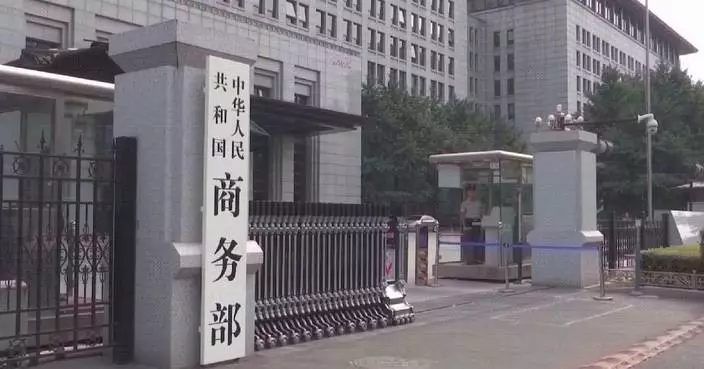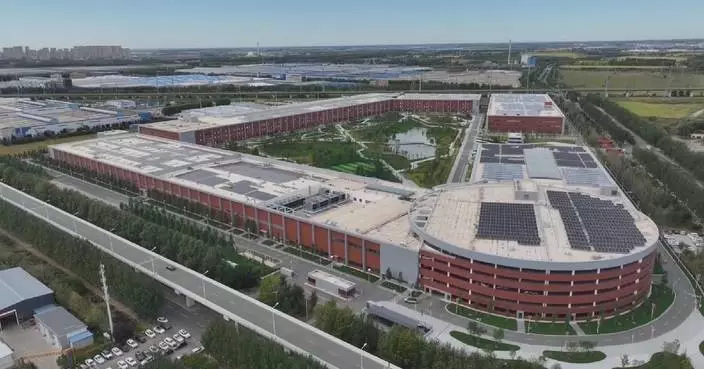Malian transitional President Assimi Goita arrived in Beijing on Sunday to attend the 2024 Summit of the Forum on China-Africa Cooperation (FOCAC) which will be held in the Chinese capital from Sept. 4 to 6.
Goita's plane landed at the Beijing Capital International Airport at 14:10 on Sunday, and this is Goita's first visit to China.
Mali is the third sub-Saharan African country to establish diplomatic relations with China, and China and Mali enjoy a long-term friendship. The two sides have cooperated closely on multilateral occasions, such as the UN Security Council, to safeguard the common interests of developing countries.
Since the establishment of diplomatic relations, China and Mali have jointly developed a large number of economic and livelihood projects including the International Conference Center, Mali Hospital, Bamako Third Bridge, the Kabala Campus of the University of Bamako, solar energy demonstration village project. China has also established a Luban workshop in Mali, which has trained many skilled and technical professionals for the country.
Many African leaders, including Chairman of the African Union Commission Moussa Faki Mahamat, will lead delegations to the summit. UN Secretary-General Antonio Guterres will attend the summit as a special guest, and relevant international and regional organizations will also attend the summit as observers.
Chinese President Xi Jinping will deliver a keynote speech at the opening ceremony of the summit on Sept. 5.
The theme of the summit is "Joining Hands to Advance Modernization and Build a High-Level China-Africa Community with a Shared Future."
Following the 2006 FOCAC Beijing Summit, the 2015 FOCAC Johannesburg Summit and the 2018 FOCAC Beijing Summit, the upcoming summit is another happy reunion of the friendly family of China and Africa. It is also the largest diplomatic event hosted by China in recent years and attended by most foreign leaders.
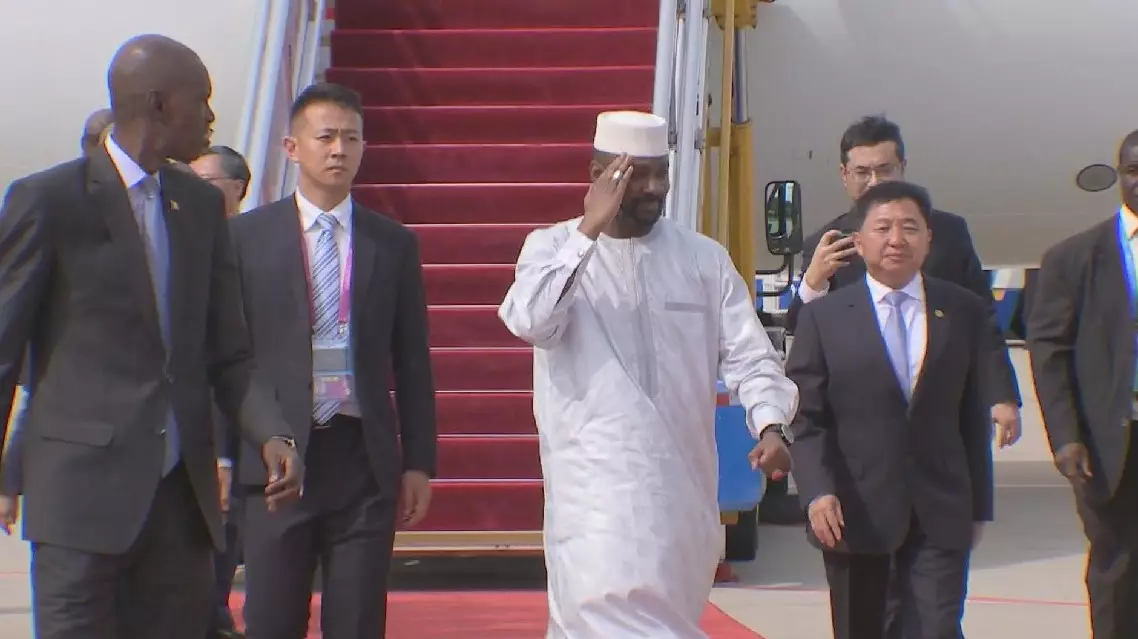
Malian transitional president arrives in Beijing for FOCAC summit
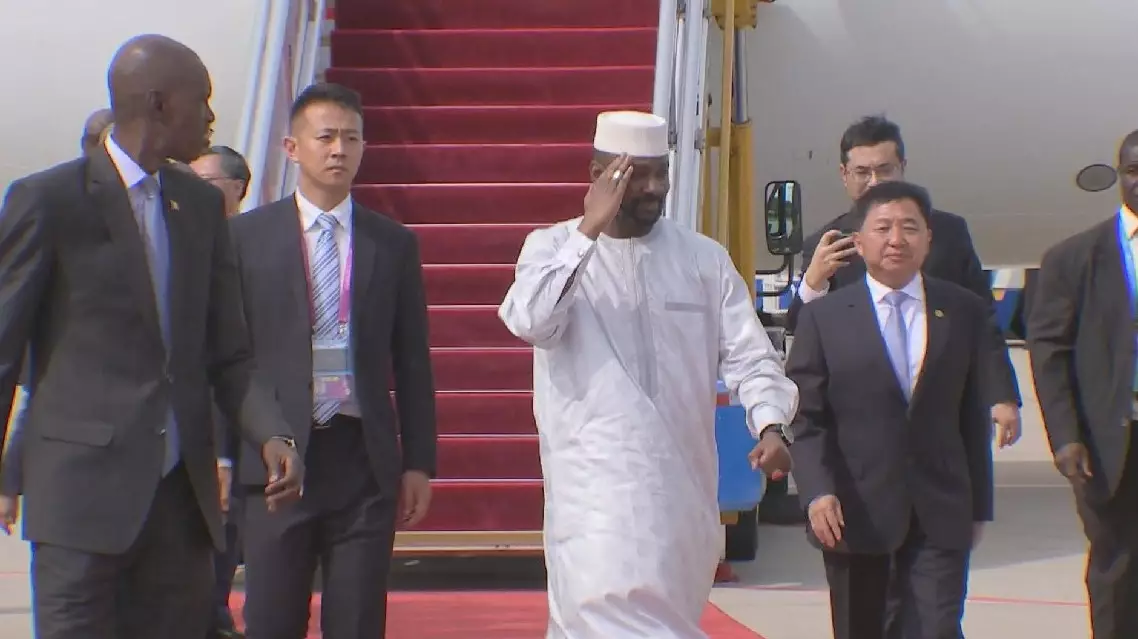
Malian transitional president arrives in Beijing for FOCAC summit

Malian transitional president arrives in Beijing for FOCAC summit

Malian transitional president arrives in Beijing for FOCAC summit
Many Singaporeans support raising the re-employment age, partly to stay busy and active in retirement, and to help address demographic challenges in the workforce.
Like many other Asian countries, Singapore is grappling with a rapidly aging population. The government predicts that by 2030, one in four Singaporeans will be aged 65 or older, up from one in 10 two decades ago.
A survey on retirement and employment conducted last year in the country found broad support for raising the national retirement age, with about 88 percent of those aged 50 and above in favor.
Some supported increasing the retirement age because continuing to do what they love, rather than retiring, keeps them feeling youthful and fulfilled.
When Nancy Hor, a retired IT operations manager, left her job five years ago, she wasn't sure how to fill her time.
"I'm a workaholic. At the very first stage after I retired, I felt I could not find balance," she said.
Hor, now 70, said it took her some time to adjust. In her spare time, she stays busy line dancing and spending time with her family.
But she said that if she had had the choice, she would have liked to stay employed a little longer.
"I think it's good for the elderly that even they have some job to do, and keep them busy," said Hor.
In March, authorities announced plans to raise the retirement age to 64 and the re-employment age to 69 by 2026.
Singapore's Minister of State for Manpower, Gan Siow Huang, said the changes to the rules protect senior workers from dismissal due to age-related issues before they reach the statutory retirement age. Employers are also required to offer re-employment to eligible workers until they reach the statutory re-employment age limit.
This follows a similar move made two years ago to raise the retirement and re-employment ages to 63 and 68, respectively. The city-state is also aiming for a retirement age of 65 and a re-employment age of 70 by 2030.
"That is to reduce the impact on businesses, so it gives time for businesses to adapt their policy. This gradual increase in retirement age basically provides a framework for individuals like myself, who want to continue to be gainfully employed," said Patrick Chang, a retirement planning specialist and the author of the A to Z guide to retirement planning.
Chang said that businesses will need to make adjustments to accommodate the changes, including offering retraining for senior workers.
He noted that the changes won't impact those who still wish to retire earlier, but given Singapore's demographic challenges, the country cannot afford to remain idle.
"If we don't do it now, the social cost could be high. We cannot wait until the time when we need it today, and then we get something done. It will probably be a bit too late, and the cost of getting to that solution will be higher," said Chang.
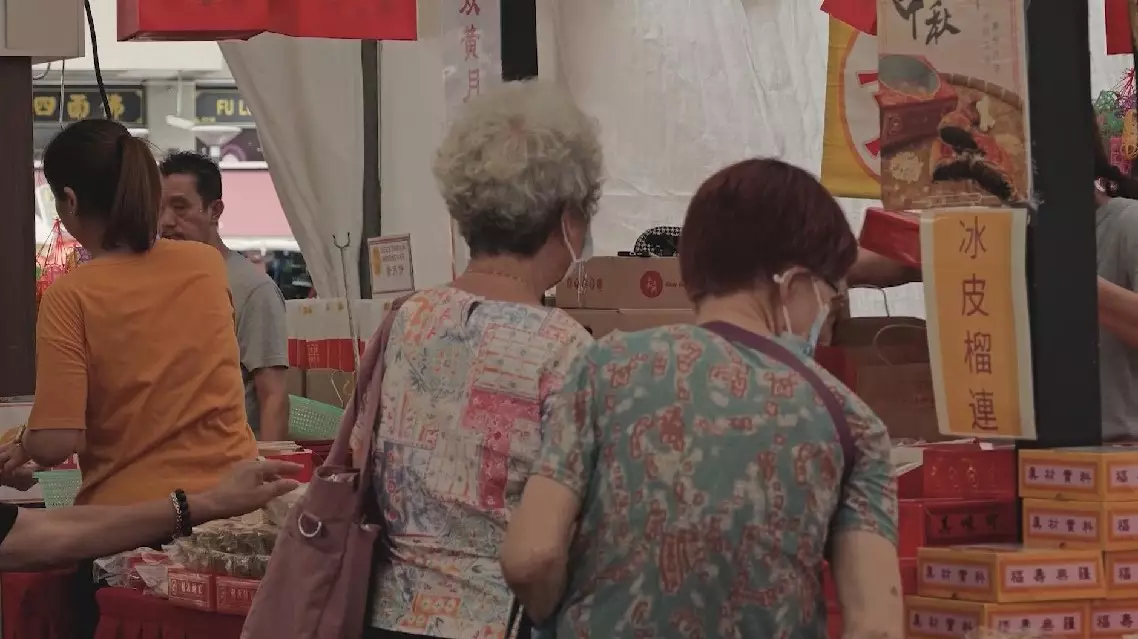
Many Singaporeans support raising retirement, re-employment ages









